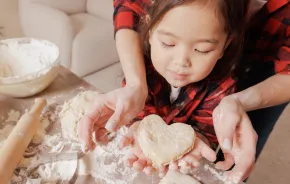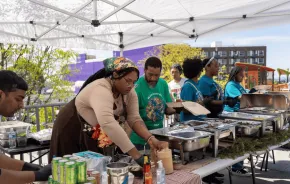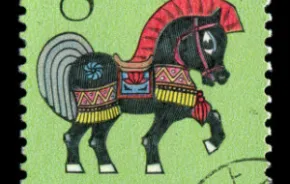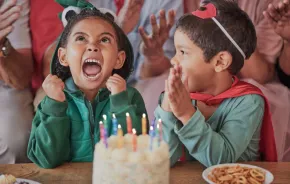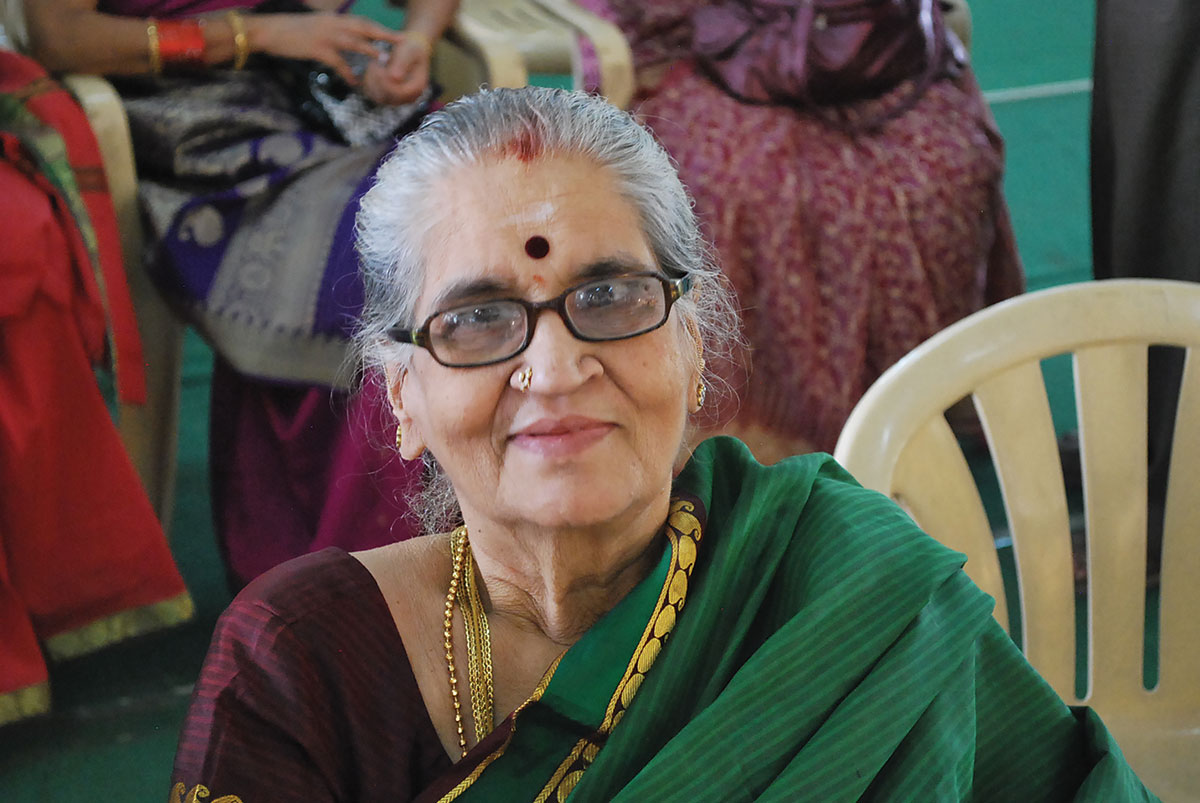
I’ll see you again for Dussehra holidays?” Paati asked as I prostrated myself at her feet (an Indian tradition of greeting or bidding farewell to elders) before leaving her house. She wasn’t happy that I was leaving for the U.S. so quickly, after a “mere” two months in India.
“That’s in October, right, Paati?” I confirmed with my grandmother. “It’s August now, Paati. I can’t be back so soon!”
“Won’t your daughter be off school?”
When I replied no, Paati was shocked. The festival celebrates the victory of good over evil in two separate mythological stories. In one, goddess Durga, born from the confluence of power from a trinity of gods — Brahma (the creator), Vishnu (the sustainer) and Shiva (the transformer) — destroys a powerful demon king, Mahishasura. In the other story, Lord Rama, an incarnation of Vishnu, overpowers and destroys Ravana, the 10-headed demon king. So you see, obviously it is a double cause for celebration, and my grandmother was not convinced that the schools and offices here in the U.S. did not declare holidays for such a powerful festival. She was appalled at the irreverence.
I had a whole other financial reason for not being able to go back to India in a month, but that would immediately be shot down with “Is money more important than your grandmother?” So it was safer to stick to the “schools do not have holidays for Dussehra” excuse. She would never ask me to make my daughter take time away from school. Education is very important in my family, just like in most South Indian families.
“So, do they have any festivals at all?”
“November and December are Thanksgiving and Christmas, Paati.”
“Wait, is Christmas the day Jesus was born, or the day he was reborn?”
“The day he was born, Paati. Think of it like Krishna Jayanti,” I said, equating it to another Indian festival, Krishna’s birthday.
“OK, so Christmas is Jesus Jayanti?”
“Ummm . . . yeah.”
“So, what is Thanksgiving?” she asked. “Do they give thanks for something some other god of theirs did? Like Narasimha getting rid of Hiranyakashyap?”
For perspective, Hindus don’t believe in one god. We believe in 330 million gods, and there’s every possibility that there’s a story for each of them, and a festival to celebrate their greatness.
“No, Paati, it’s got something to do with harvest, pilgrims and Indians,” I said, responding just as vaguely as my American friends had when explaining the holiday to me.
“So, it’s like Pongal?” Paati asked. Did I mention we also have harvest festivals across India? Each state celebrates it around January and each has a different name for the festival. Tamils call it Pongal.
“And how come the Indians are a part of Thanksgiving?” she continued. She was either very curious or just wanted me to stay a little longer.
“It was a mistake that stuck, Paati. When Christopher Columbus reached America, he thought he had crossed the Indian Ocean and had reached India, and he called the people there Indians, when in fact he had reached America. They are actually Native Americans.”
“Aiyyo!” she exclaimed. (The equivalent translation would be “Oh my gosh!”) “He made such a big mistake and it stuck? So they’re not really Indians?”
“Yes and no. They’re not really from our country.”
“So what do they do on Thanksgiving?”
“All friends and families get together, watch football and eat a lot of food.”
Aiyyo! He (Christopher Columbus) made such a big mistake and it stuck? So they’re not really Indians?”
-Paati
“No puja?” she asked, gasping for breath. No elaborate ceremonies to thank gods with lamps, incense and offerings? That’s sacrilegious to her generation. “But that just sounds like a description of every day here; just that, instead of football, it’s cricket,” Paati noted. “Are there any standard dishes like how we make kozhakattai [steamed coconut-stuffed rice balls] for Ganesh Chaturthi [Ganesha’s birthday], seedai [sweet or savory rice-flour fritters] for Krishna Jayanthi?”
“Yes, Paati, there are. They have stuffed turkey, pumpkin pie, cranberry sauce and so on. Each guest can choose what to bring.”
“Wha . . . ?” Paati could not finish her sentence.
“Water, Paati?”
“You mean the hostess makes the guests get food?”
“The host also makes some dishes, Paati.”
“Is the hostess very poor?”
“No, Paati. That’s a lot of dishes for just one person to make.” I knew it was not the explanation that would work with her. She has the reputation of being the best and fastest cook in the family. Paati always whips up your favorite dishes within minutes, even if you arrive unannounced. She is magical that way.
“They don’t have maids to clean up, so friends offer to chip in.”
“Pfff,” she scoffed. By not cooking all the dishes, the hostess was going against the doctrine of “Atithi devo bhava” — “Guests equal God.” You can’t make God cook!
She was sure the hostess was being disrespectful, so she changed the topic.
“So, will you come then? I’ll make your favorite, idli and chutney.”
“Where? When?” I was disoriented.
“Here. On Thanksgiving?”
“No, Paati, we get only a week off. That’s too short a time to visit you.”
“So, when will you come here then?”
“Next year, same time?” If I’ve saved enough money.
“For two months?” Paati asked to confirm.
“Yes, summer vacation,” I answered.
“Also, Ganesh Chaturthi.” She smiled. “I’ll make kozhakattai.”









